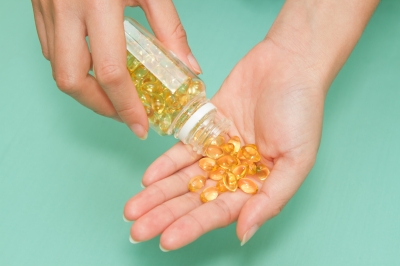Reduce Stroke Risk with Vitamin E Derived from Palm Oil
 Dr. Joseph Keenan retired as a Professor of Family Medicine at the University of Minnesota. He holds a joint professorship in the University of Minnesota School of Food Science and Nutrition. Dr. Keenan is considered one of the leading national experts in the field of nutritional supplement research and cardiovascular disease. He is now practicing emergency medicine, and continues teaching and consulting is his areas of research interest which include preventive cardiology.
Dr. Joseph Keenan retired as a Professor of Family Medicine at the University of Minnesota. He holds a joint professorship in the University of Minnesota School of Food Science and Nutrition. Dr. Keenan is considered one of the leading national experts in the field of nutritional supplement research and cardiovascular disease. He is now practicing emergency medicine, and continues teaching and consulting is his areas of research interest which include preventive cardiology.
Lisa Nelson, RD: What is white matter, and how is it related to stroke?
Dr. Keenan: “About 50 percent of your brain is made of white matter, which provides connections to the various other brain centers and thus is important for learning and memory. This is also the area of the brain most often affected by “mini strokes”, also called lacunor strokes, which often cause no overt symptoms. But as they accumulate over years, they can affect function and memory.”
Lisa Nelson, RD: What are white matter lesions?
Dr. Keenan: “White matter lesions (WMLs) are abnormal regions in the brain that can be detected by MRIs. They are often found in elderly people, and are associated with atherosclerosis in the small blood vessels of the brain, hypertension and diabetes mellitus. If the condition worsens, WMLs may result in cognitive impairment and dementia.”
Lisa Nelson, RD: Is there any way to weaken the progression of these lesions?
Dr. Keenan: “Results of a two-year human clinical study published in the American Heart Association journal, Stroke, show that vitamin E tocotrienols derived from Malaysian palm oil may be helpful. This is the first study that provides solid evidence of tocotrienols’ neuroprotective benefits in humans.”
Lisa Nelson, RD: The benefits of tocotrienols and stroke have been in the news before, haven’t they?
Dr. Keenan: “Yes. Previous animal studies have reported that vitamin E tocotrienols derived from palm oil are capable of preventing damage to white matter during a stroke, and improved circulation to the damaged part of the brain after a stroke.
Lisa Nelson, RD: Why are healthcare professionals so excited about this study?
Dr. Keenan: “Many other compounds have been shown to display neuroprotective effects in animal models of stroke. But they failed in human clinical trials. This may be because the human brain has so much more white matter (about 50 percent) than rats (about 10 percent), for example.”
Lisa Nelson, RD: How was this study conducted?
Dr. Keenan: “This was a randomized, double-blind, placebo-controlled trial conducted by leading tocotrienol researchers at the University Science Malaysia, Penang, Malaysia. They followed 121 volunteers for two years. Each volunteer underwent MRIs to confirm the presence of WMLs. One group received 200 mg. of mixed tocotrienols twice daily for two years, while the others received a placebo. All volunteers were instructed to maintain their regular diets and physical activity levels. MRIs were performed at entry into the study (baseline), and then repeated after one year and again after two years. At two years of supplementation, the mean WML volume of the placebo group increased whereas those who received palm tocotrienols remained unchanged.”
Lisa Nelson, RD: Are there other reasons to be concerned about white matter lesions, in addition to stroke?
Dr. Keenan: “Brain white matter lesions are also known to be linked to development of other neurodegenerative diseases, such as Alzheimer’s and Parkinson’s disease.”
Lisa Nelson, RD: What is your recommendation, after reviewing this research?
Dr. Keenan: “This study shows that taking palm-derived tocotrienols daily may be an easy way to be proactive about your brain health, especially if you are at high risk for stroke.”
Dr. Keenan says that palm tocotrienols are well researched for their heart-health benefits. Additional studies can be found at www.palmoilhealth.org.
Learn how to make Heart Healthy Changes into Lifelong Habits at http://hearthealthmadeeasy.com.
All the best,
Lisa Nelson RD
Image courtesy of Praisaeng / FreeDigitalPhotos.net



